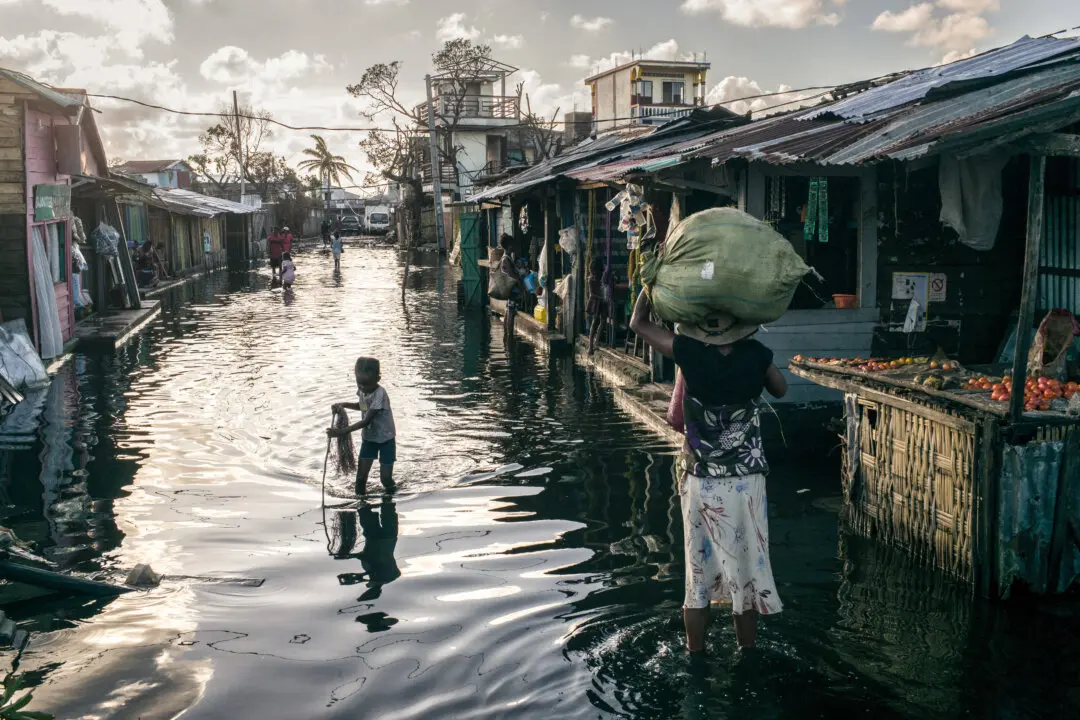Half a million primary school children have started their Easter Holidays, yet many may lack an awareness of how to stay safe when playing near or on water. With a full moon this past Wednesday March 27th and the associated risks of higher waters and spring-tide related stranding, Irish Water Safety appealed to parents to give vital water safety information to their children. IWS also implored teachers do so when schools return to help prevent further tragic drownings this coming summer.
Children are naturally curious about water and, therefore, parents should check if their local primary school has yet introduced Irish Water Safety’s Primary Aquatics Water Safety “PAWS” programme, which is a component of the primary school curriculum that teaches children how to stay safe around water. Much of the programme is easily delivered as it is classroom based, yet many primary schools have yet to deliver this training. With some months left before summer, there is still time for teachers and parents to teach essential life skills to keep children safe from drowning.
Forty children aged fourteen and under drowned in the last ten years, often silently and in a matter of seconds and, sometimes, in just a few inches of water. It is therefore essential that kids are constantly supervised when on or near water.
According to the IWS, constant responsible parental supervision helps guarantee child safety, yet tragic drownings occur every year when children manage to escape the watchful eye of guardians. Schoolteachers are ideally placed to instil good safety habits in time for the summer months ahead.
Ireland averages 140 drownings every year, and water-related tragedies can happen in seconds. Although 2012 had fewer drownings than average at 128, the dangers that put people’s lives at risk have not gone away, and a danger foreseen is a danger avoided. Irish Water Safety has the following lifesaving advice that teachers and parents alike can deliver to keep children safe from drowning:
Some 54 per cent of drownings occurred inland, while 34 per cent occurred in coastal regions. Walkers should therefore remain alert and stay well away from the edges of ordinarily familiar waterside pathways due to the risk of riverbanks crumbling away or the possibility of beach walk stranding. Please carry your mobile phone, and ideally be in the company of others. Remember your lifelines in an emergency are 999 and 112.
Anglers are at higher risk and should be extremely vigilant against Atlantic swells when fishing from the shoreline. They and all those using boats should ensure that their family and friends wear lifejackets at all times.
Alcohol should be avoided before or during any aquatic activity. On average, a third of drowning victims had consumed alcohol beforehand. It is therefore best left until after your activity to celebrate.
When children are brought boating, it is essential that they wear a lifejacket and that the lifejacket has a crotch strap to avoid the possibility of the child slipping out through it. More online advice geared towards children is available at www.aquaattack.ie to ensure children’s safety when boating, on farms, at inland waterways, on holidays, at swimming pools and all areas where tragic drownings have previously occurred.
Irish Water Safety encourages everyone to take swimming, lifesaving, survival and rescue classes. If you locate missing Ringbuoys then log on to www.ringbuoys.ie to report them, because “a stolen ringbuoy could lead to a stolen life” in an emergency.
For further information log on to www.iws.ie




